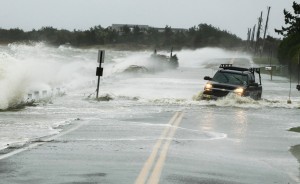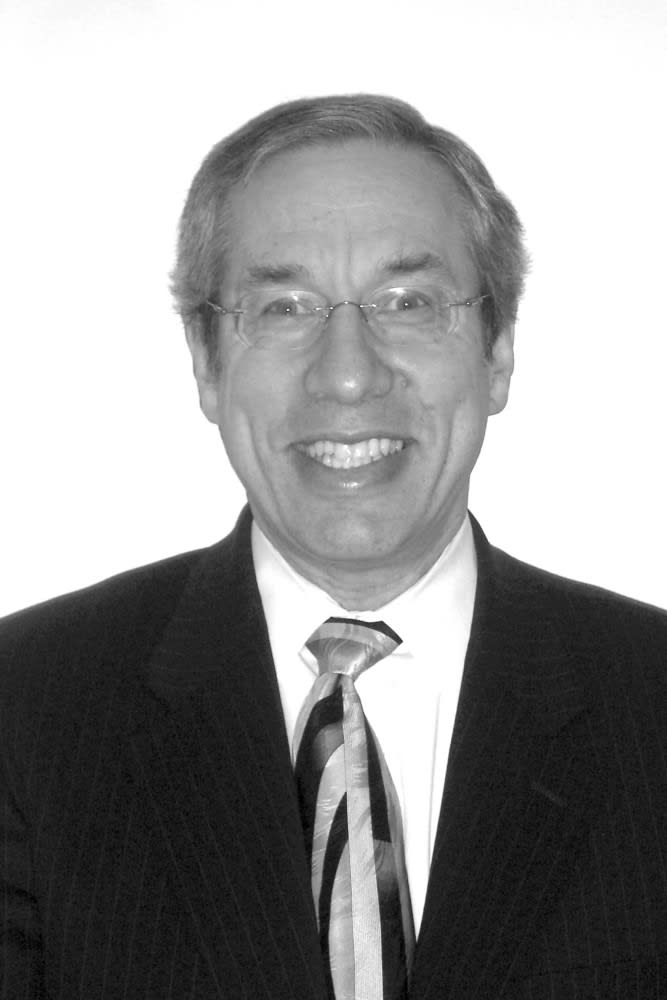Many of us have been living away from home for almost a month. Some of us either never left or have returned home because we had no choice or because things have improved. There is one recurring theme that many people have expressed. The feeling is that things are much worse now then they were at the time Sandy rudely entered our homes.

Now we know the true extent of the losses and damage. Now we know how little we are getting from FEMA and whether we will be fully, partially, or not covered at all by our insurance companies. This has put some families under intense economic pressure. Add that to other real life issues, and I sense a feeling of despair and hopelessness. This has affected shalom bayit (domestic harmony) and the sense of security that young children need to feel when they are with their family.
I think that comfort may be found in analyzing the Jewish laws of mourning.
We always go from intense grief (‘aninut’) to strict mourning at home (‘shiva’) to more relaxed rules (‘shloshim’). And then with the passage of more time, recovery. The point is that there must be a process of grief. We cannot jump from extreme to extreme because then we fall off the cliff.
Sandy was similar in PHASE ONE: The flood (‘aninut’), the receding waters (‘shiva’), and the cleanup (‘shloshim’). But instead of getting easier, as in the case of mourning, things have gotten harder. (And this is sometimes true in mourning as well – sometimes the pain becomes much worse for a while, unexpectedly, before it gets better.)
Now we are faced with PHASE TWO: The shells of a house that once was, serious financial problems, deep concern about an uncertain tomorrow, and heart-wrenching stress. We are back to the most intense period of grief all over again.
I think it is important to acknowledge how bad the reality is, and how much people are suffering. This is real. We should find ways to talk openly about it to each other, so that we can support each other.
The reality is harsh, and difficult, and there’s a very long road ahead. No one should be naive about how long it will take to return to normal, or that for some families there may be a new “normal” for a long time. This is scary; this brings instability to our lives; this make us feel vulnerable.
Some of us may find that we and our spouses, or we and our friends are not all reacting in the same way. We may disagree with how someone around us is reacting, or even feel that their approach is not helpful.
This may make us feel lonely or afraid, or even feel like some of our relationships aren’t exactly what we thought they were before. But what we need to realize is that this is a second Hurricane Sandy – a much more subtle hurricane that is not attacking our personal property, but our mental health and our loving relationships with other people. The good news is that this hurricane is one that we can take concrete steps to avoid. We must deny Sandy the ability to take more than she has already taken.
We need to be attuned every day to our own mental health, and to the ways in which the people around us are feeling. For some of us, this may be the biggest challenge we have faced with our spouses as a couple, and as a family. We need to rise to the challenge. We need to find new ways of communicating openly and lovingly, despite fears and practical disagreements.
When we feel hopelessness and despair begin to overtake us, we are duty bound to raise ourselves by the bootstraps and ask ourselves: Are hopelessness and despair useful, productive feelings? No! It’s our obligation to ourselves, our families, and our future to network with our friends and loved ones to figure out how to expel the negative and unproductive feelings that only serve to drag us down and make us question our competence and ability to cope. We know that anger at our spouse or impatience with our children will only make a difficult situation worse. We need to acknowledge that trying circumstances are breeding grounds that bring out the worst in us. Knowing that is a prerequisite to utilizing strategies to prevent these negative feelings from defeating us.
We also need to know ourselves. What has uplifted us as a family or as individuals in the past? Bein adam lamakom, acts between man and G-d, may appeal to us; bein adam le chaveiro, acts between one man and another, may speak to us; some of us may connect to both! Is it setting aside some time to help others? Is it writing or drawing about our feelings? Is it saying Tehillim, psalms, for someone who is battling a life-threatening disease? Is it taking on a mitzvah (commandment) that we haven’t been so careful with? Is it participating in a chessed (charitable) project for those who are even worse off than we are? Is it taking on a family project such as restoring some old family photos and creating some albums of happy times and good memories? Is undertaking that project for another family the way to go? Is it reaching out to friends that we have lost touch with and think of fondly? Is making an attempt to repair a rift in an important relationship that we have neglected something we can do to uplift us? Whatever we focus on, it should be something that promotes positive thinking, something that feels like we are building, repairing, restoring, contributing to a greater good at a time that there is so much that has been destroyed, broken apart, set back, and lost. Just like the response to death has to be life, the response to destruction and devastation has to be restoration and reconstruction.
Here are some additional concrete steps we might take:
1) Have a “family meeting” once a week where we remind ourselves how much we love each other, and how we are strong, and we can get through this. Things may look different for a long time, but our love and all that we have been through together will help us through. We should encourage children to be open about their fears and we should validate them.
At the same time, we should try to alleviate their fears by turning aspects of Sandy clean-up and recovery into a game (for very young children), or something that valuable life lessons can be learned from (for older children). Some parents might want to start a support group where they share strategies of how to communicate with children at different age levels – share what has worked and what hasn’t.
2) The adults in the family should communicate openly with each other.
If a couple finds that they are responding very differently to the damage of the storm, they should find the time to “hear each other out” and strategize about how to move forward in a way that accounts for all of the relevant feelings.
In some cases, it might be helpful to bring an outside mentor in to help facilitate this conversation (whether it be a rabbi, a trusted friend, or a professional therapist). People should realize that all of these feelings are VERY NORMAL. We just need to find a way to get through this.
We need to realize that as terrible as things are – and they really, really are terrible – we truly are better off than many other people.
We have a very strong community that has helped ease some of the blow, and there are many places, not too far away from us, that have no safety net like the one that we have here. This doesn’t make anything better, but putting things in perspective always helps at least a little.
We are human beings. We are subject to the whims of nature and to the frailties of the human condition. For a long time, many of us were able to forget about this and to think that we had achieved very stable and self-sufficient lives. And Hurricane Sandy reminded us that we are indeed human. But part of being human also means that we can love deeply, support each other, communicate with each other, and bring out the best parts of ourselves.
The contents of this chizuk (encouragement) note are the collected thoughts of myself, my wife Rookie, and my daughter Shira. We have each faced times of challenge and through a collective family effort have found a way to find the light at the end of the tunnel and recover.
When all is going well and you are at the acme of success and, then, you are suddenly submerged in a bottomless black abyss and experience the lonely dark night of the soul, it is hard to climb back to the apex. However, it is doable: The Rov pointed out, citing Moshe Rabbenu, that after the breaking of the tablets Moshe had a crushing feeling of failure—yet he found the strength to climb Mount Sinai another time and accept the tablets for a second chance. At that moment, Moshe achieved true redemption and emerged greater than before his ordeal.
So let’s keep trying to do that. It is so, so hard. It will continue to be very hard for a long time. But we can do it. And we will emerge much stronger, in time.
Stay tuned for the spring 2013 issue of Jewish Action for more on Sandy relief efforts.
Rabbi Hershel Billet is the rabbi of the Young Israel of Woodmere.
The words of this author reflect his/her own opinions and do not necessarily represent the official position of the Orthodox Union.
